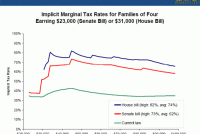Latest KFF Health News Stories
As Records Go Digital, Cultures Clash
A group of Broward County doctors looking to switch to electronic medical records say the result has been a massive headache: surprise charges, inadequate training and even blocked access to patient files.
Audio: Health On The Hill – January 21, 2010
The fate of congressional health overhaul legislation is uncertain after Republican Scott Brown’s win in Massachusetts’ special election on Monday and Democrats’ loss of a filibuster-proof majority.
How The Budget Reconciliation Process Works
Democrats, who no longer have a filibuster-proof majority in the Senate, are weighing the use of a budget rule called reconciliation to pass at least part of the long-debated health overhaul package with a simple majority.
Who Really Understands ObamaCare?
Voters understand what’s in the bills. They just don’t like it.
Why Public Support For Health Care Faltered
The Democrats’ health overhaul legislation is in trouble for many reasons, including key policy decisions that led many Americans to wonder whether they would wind up worse off.
Business Is Booming For Big Drug Negotiators
If your health insurance covers prescriptions, you are probably a customer of a pharmacy benefit management company. These third-party administrators for prescription drug programs make up one of the few industries growing during this recession, and are now poised for even more growth, as baby boomers age and Congress prepares to insure more Americans.
Give Nurses A Bigger Role In Improving Health Care
Poll after poll finds that nurses are either the most trusted group of professionals, or one of the most trusted groups, in the country.
Fewer Employers Satisfied With Their Health Insurers, Survey Says
A majority said they would increase employees’ cost-sharing responsibilities as part of their cost-control strategy.
Transcript: Health On The Hill – What The Massachusetts Senate Race Could Mean For Health Reform
The outcome of the Massachusetts Senate race could play a pivotal role in efforts by President Obama and congressional Democrats to pass a health care overhaul bill this year.
Health On The Hill – January 19, 2010
The outcome of the Massachusetts Senate race could play a pivotal role in efforts by President Obama and congressional Democrats to pass a health care overhaul bill this year.
Opponents Threaten Constitutional Challenge To Individual Mandate
A major component of the Congressional health bills is a requirement that nearly everyone buy health insurance. But conservatives who oppose health reform have threatened a challenge on constitutional grounds.
How Does U.S. Long-Term Care Stack Up Against the Rest of the World?
There are two important lessons from the European experience with long-term care.
Big Bills For A Small Heart: The Lemacks’ Story
A Virginia family got permission for out-of-network care for their son’s heart defect but still ended up drowning in debt.
The Lemacks got permission for out-of-network care for their son Joshua’s heart defect, but the Virginia family still ended up drowning in debt.
Obama, Democrats Compromise On ‘Cadillac’ Tax, Eager To Move Past Health Bill
President Obama was upbeat about negotiations on health legislation as he addressed the Democratic Caucus last night. With him are House Majority Leader Steny Hoyer and Speaker Nancy Pelosi. (Ron Sachs-Pool/Getty Images)
Feds Vs. States: Who Should Run Proposed Health Insurance Marketplaces?
The final decision on who should supervise health exchanges is critical to health plan choices available to consumers, the cost of the premiums and the clout regulators may have.
Individual Mandate Would Impose High Implicit Taxes on Low-Wage Workers
A Cato Institute new study finds implicit marginal tax rates would hover near 70-80 percent over broad ranges of income. In many cases, they would exceed 100 percent, financially penalizing those who try to climb the economic ladder.
Florida Officials Say They Will Resist Some Requirements In Health Overhaul
Florida’s Republican attorney general opposes the individual mandate and a state insurance official says significant changes in state laws would be needed to meet federal requirements if overhaul passes.
Chamber Of Commerce Says Health Fight Over – But Sees Room To Maneuver
Officials at the U.S. Chamber of Commerce predict that House and Senate negotiators would finish their work and get a final bill to President Barack Obama by mid-to-late February.
House, Senate View Health Exchanges Differently
One key element of both the House and Senate health bills would create health insurance “exchanges” where individuals and small businesses could purchase health insurance. However, the House and Senate versions would work in very different ways. This story comes from our partner NPR News.







